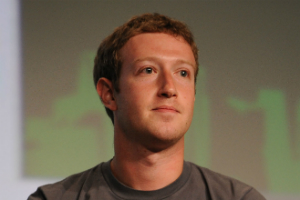The Chan Zuckerberg Initiative (CZI) announced a commitment of at least $3 billion over the next decade for its next major focus area, science. The goal is to advance science research to cure, prevent or manage all disease by the end of the century.
Facebook founder Mark Zuckerberg and his wife Priscilla Chan, M.D., also unveiled the incoming president of science for CZI, Cori Bargmann, M.D., a renowned neuroscientists at The Rockefeller University in New York. She will begin Oct. 1 and oversee the effort to “develop and implement a strategy to unlock understanding of the human body to the cellular level.”
The first investment will be The Biohub, with initial funding of more than $600 million over the next 10 years. The Biohub is an independent research center that will serve “as a nexus for collaborations between experts across multiple disciplines,” formed in partnership with Stanford University, University of California-San Francisco, and University of California. It will be led by Joseph DeRisi and Stephen Quake.
The Biohub will launch two research projects to be conducted during the next five years: The Cell Atlas and the Infectious Disease Initiative. The Cell Atlas will be a map made available to researchers around the world that reveals the different types of cells that control major organs. It is intended to depict the internal machinery of cells in unprecedented detail, enabling scientists to search for the basic breakdown that occurs when disease strikes. The Infectious Disease Initiative will explore new approaches and develop new tools for creating drugs, tests and vaccines to fight existing problems, such as Ebola, Zika and HIV.
Life expectancy has increased about a quarter of a year per year for the past century, Zuckerberg said before making the announcement via Facebook Live. At that pace, the average life expectancy will be about 100 years by the end of this century. Most people die from only four kinds of diseases: heart disease, cancer, infectious disease, and neurological disease.
“Most scientific breakthroughs are preceded by new tools that allow you to see experiments in new ways,” Zuckerberg said, such as the telescope, microscope or more recently, DNA sequencing.
CZI aims to more broadly focus on building tools that suggest a road map on how to manage diseases in this century, Zuckerberg said. “We can empower scientists all around the world to make much faster programs and breakthroughs in these areas,” he said.
There are three core elements to CZI’s strategy:
- Bring scientists and engineers together in new ways to tackle major science questions and unlock medical breakthroughs;
- Build tools and technology that scale up today’s research; and,
- Grow the movement to fund science
A Science Advisory Board will be comprised of seven people: Tobias Bonhoeffer of the Max Planck Institute of Neurobiology; David Haussler of the Genomics Institute at the University of California, Santa Cruz; Arthur Levinson, chief executive officer of Calico and chair of the board at Apple; Shirley Tilghman, Ph.D., professor of molecular biology and public policy and president emerita of Princeton University; Robert Tijan, Ph.D., a biochemist at the Howard Hughes Medical Institute and its president from 2009 to earlier this year; Harold Vamus, a Nobel Prize winner who is the Lewis Thomas University Professor of Medicine at Weill Cornell Medicine and a senior associate at the New York Genome Center; and, Huda Zoghbi, a professor in the Departments of Pediatrics, Molecular and Human Genetics, Neurology and Neuroscience at Baylor College of Medicine. She is also an investigator at the Howard Hughes Medical Institute.
“There are so many opportunities for government, but also nonprofits and companies, to make more breakthroughs. This is an area where public support really matters,” Zuckerberg said.
